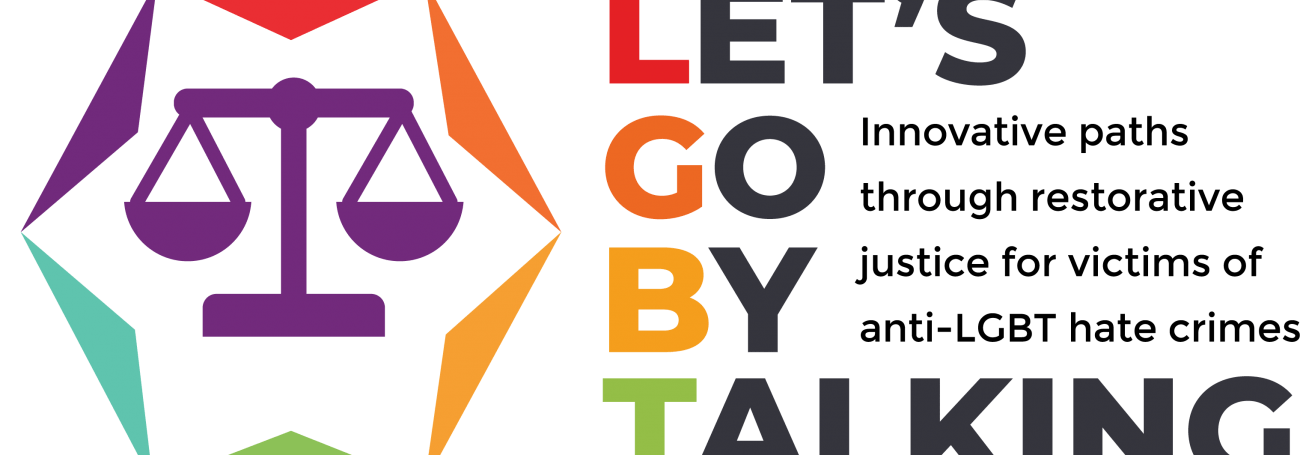
Partners: Universitat de Barcelona (Spain), Universitat de Girona (Spain), Çavaria vzw (Belgium), Stichtings Avans (Netherlands) , Universita degli Studi di Brescia (Italy), Resursen Tsentsar Bilitis (Bulgaria), Uniwersytet Wroklawski (Poland), European Forum of Restorative Justice (Pan-european).
Coordinator: Universitat de Barcelona UB
Duration: 24 months
Funding: European Justice Program.
Summary of project: This project aims to contribute to the reparation of anti-LGBT hate crimes, by guaranteeing the victim’s rights, through the promotion of restorative justice (RJ) in the EU.
Lesbian, gay, bisexual and transgender (LGBT) people in the EU experience discrimination, harassment and violence in different areas of life. According to the EU LGBT Survey almost half of all respondents reported having felt discriminated against or harassed on the ground of sexual orientation or gender identity in the year preceding the survey. Furthermore, a quarter of all respondents had been attacked or threatened with violence in the previous five years. In accordance with the results of the Divercity and Come Forward projects (carried out by the members of the partnership), LGBT people rarely report discrimination or violence to the police or other authorities, mainly due to their distrust in the complaint mechanisms and the judicial system. In addition, according with the data obtained from the SupportVoC project (also developed by some members of the LetsGoByTalking partnership), the criminal process often generates secondary victimisation and does not have the restorative effects that victims need.
Consequently, combating secondary victimisation, strengthening the victims’ trust into the reporting authorities and the judicial system (which would counteract the problem of underreporting), and ensuring a complete restoration of the harm caused by the violence, have become priorities for the European institutions in order to ensure the victims’ rights and to advance LGBT equality.
Some of the objectives are:
- To map EU legislation regarding RJ and the rights of victims;
- To analyse the perspectives of victims of anti-LGBT hate crimes and key professionals;
- To identify and study programmes of RJ in cases of hate crimes;
- To foster the exchange of experiences and the cooperation between professionals;
- To develop training guidelines and courses for RJ practitioners;
- To raise-awareness about the RJ efficacy;
- To enhance the rights of victims established in the Directive 2012/29/EU.






